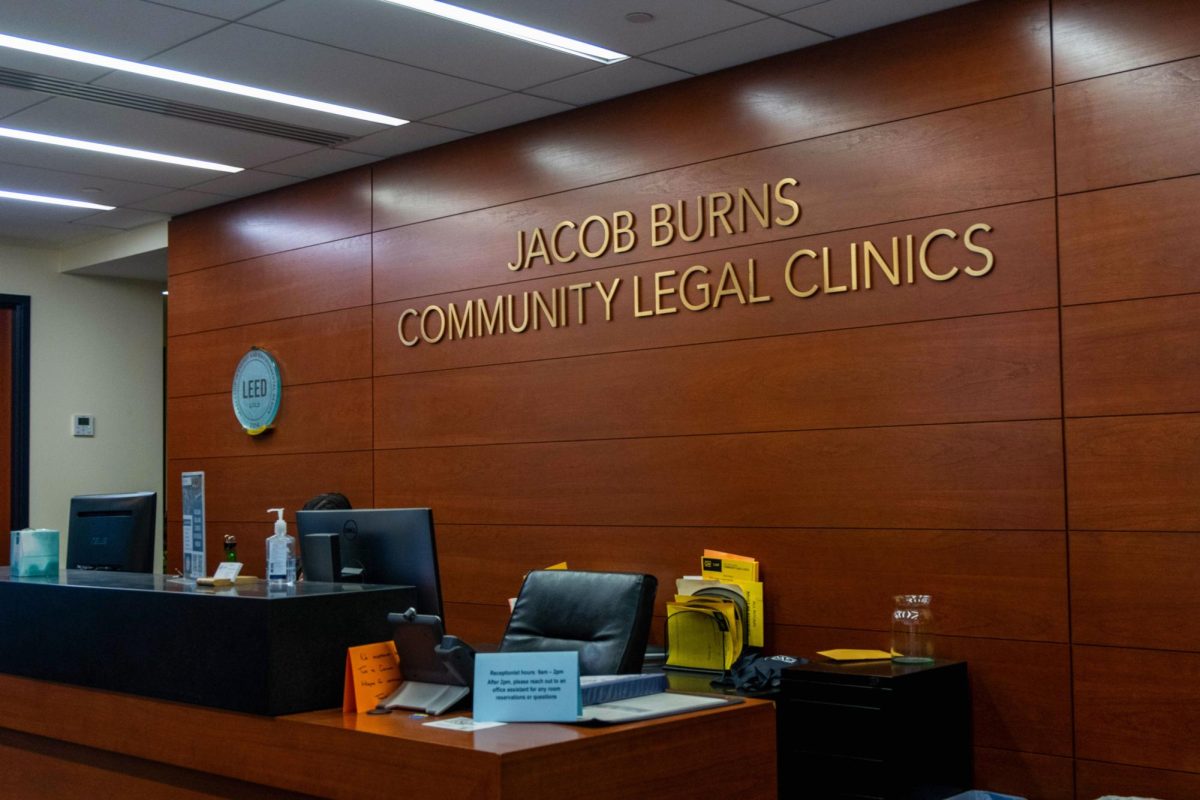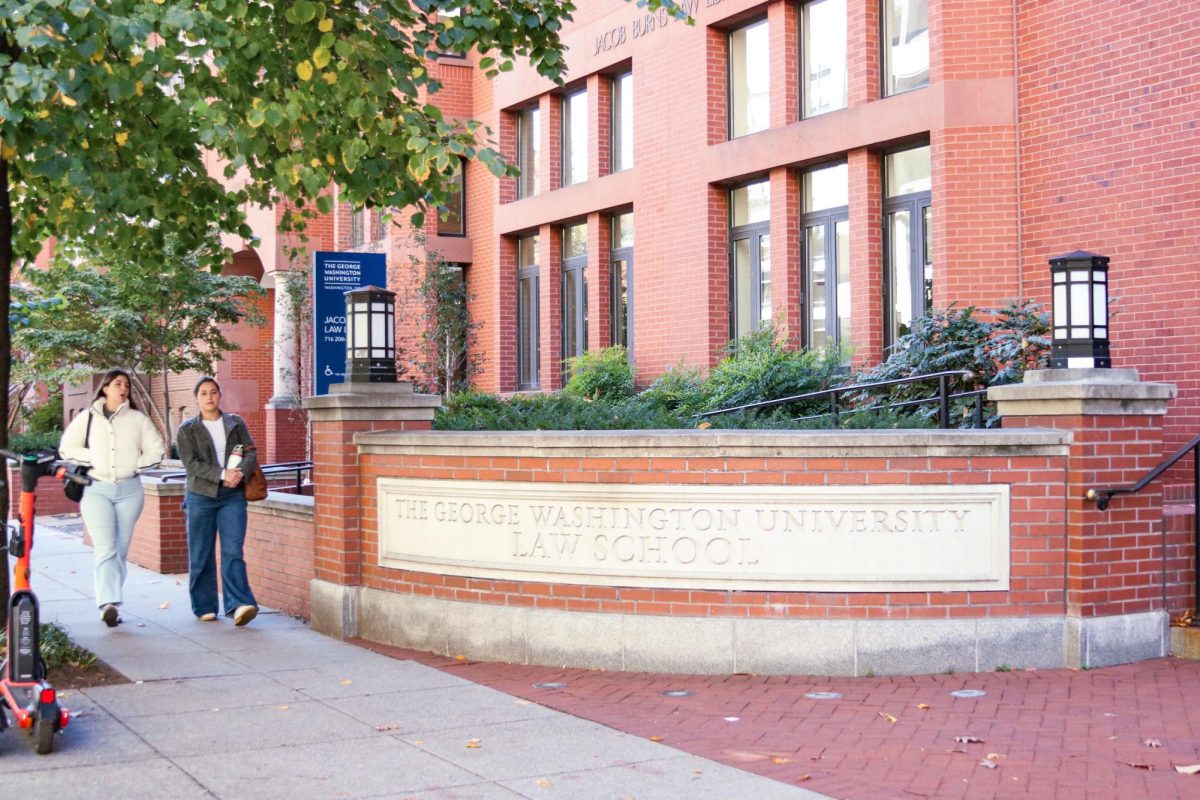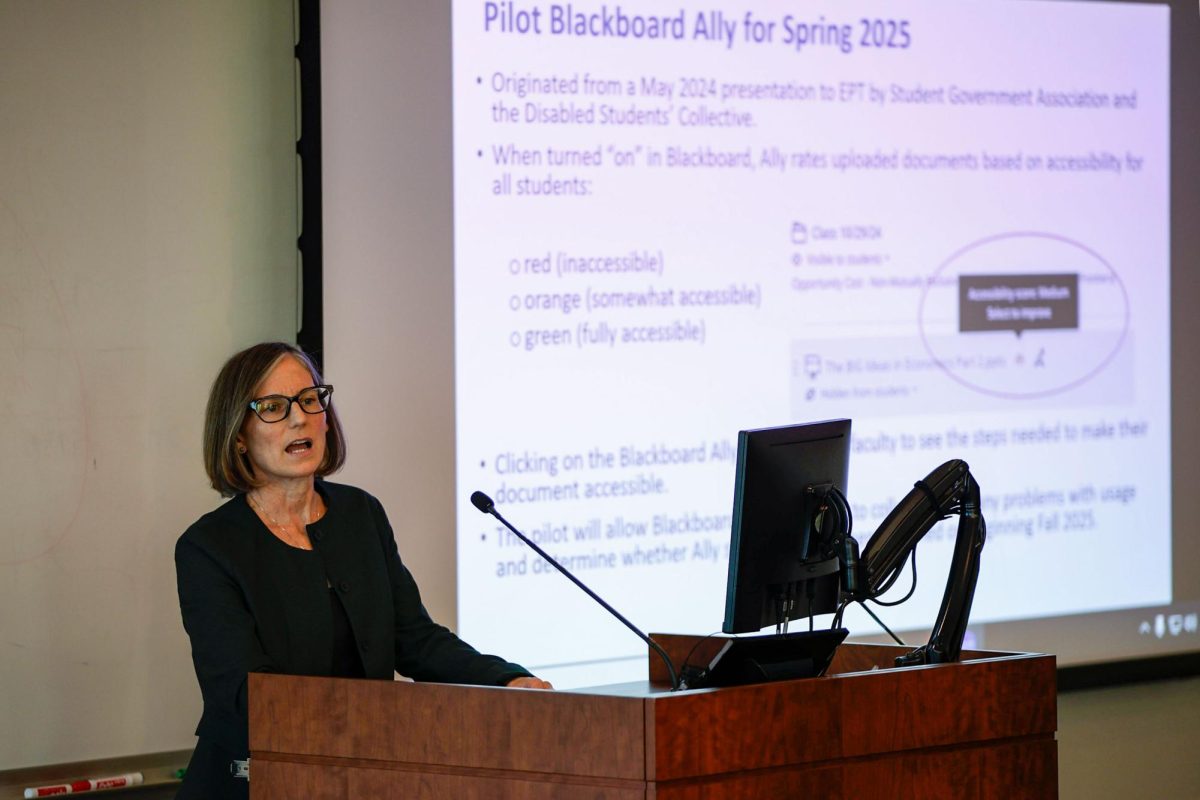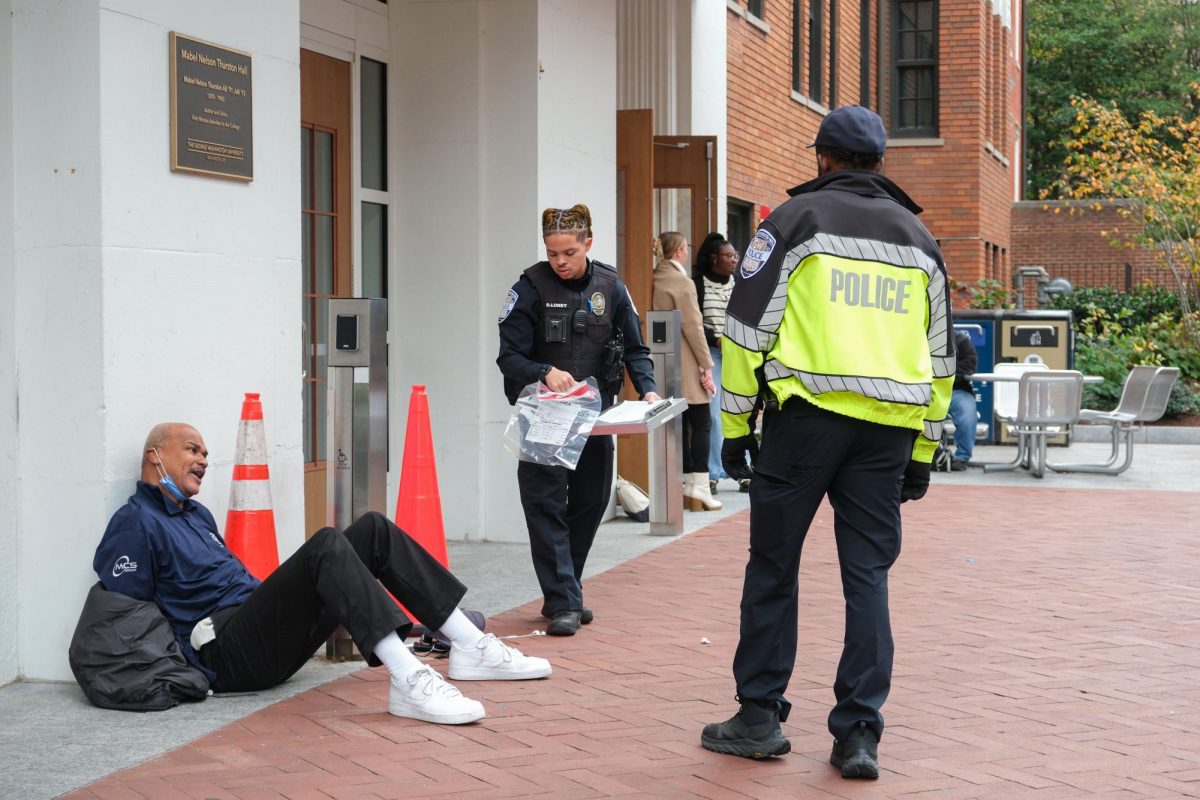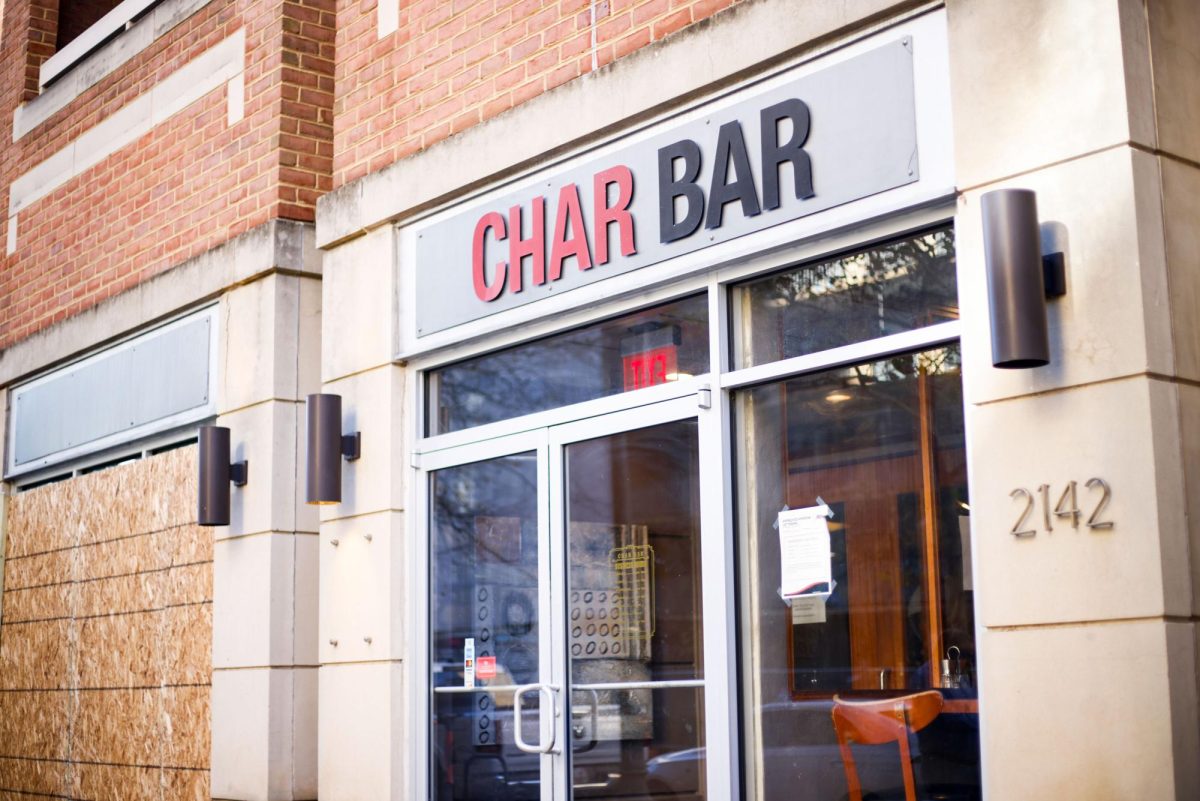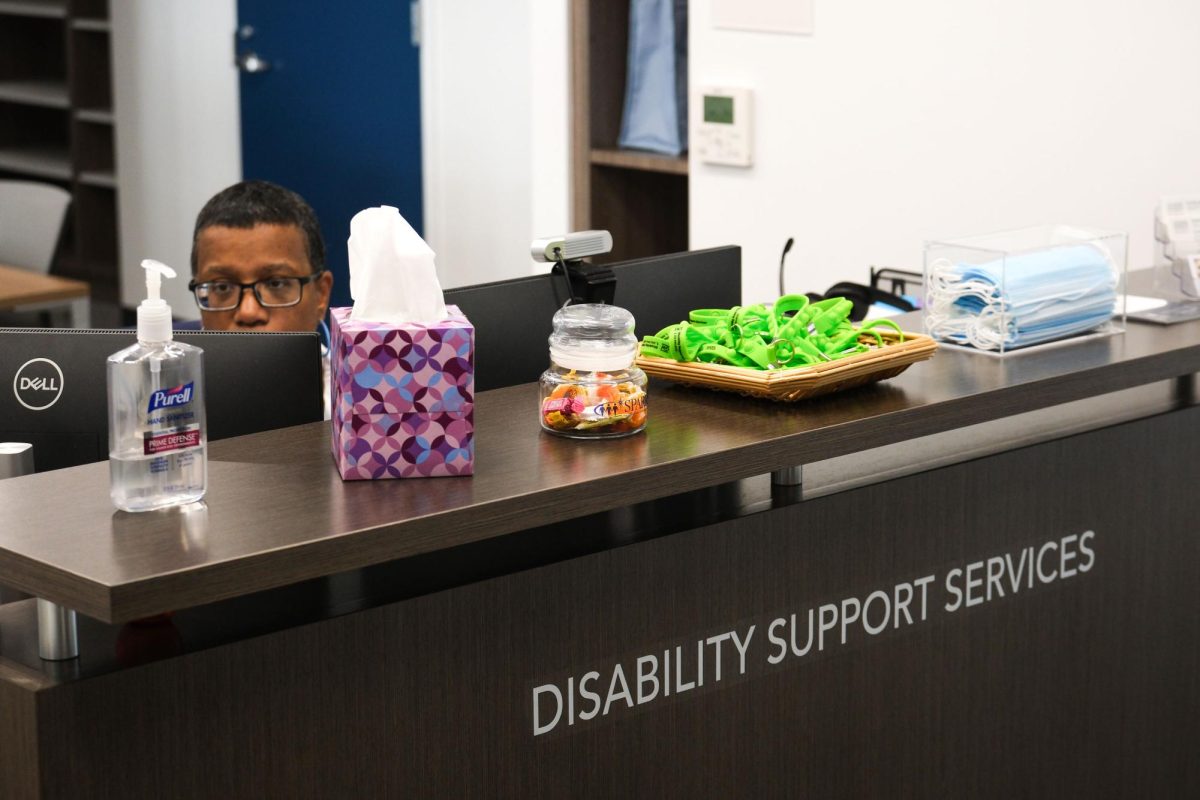A legal education program that provides hands-on training for law students will incorporate three new clinical programs in the spring semester.
The GW Law Jacob Burns Community Legal Clinics’ three new programs will operate out of the Access to Justice Clinic, a family law-based clinic that students participate in to provide legal service to those in and out of the District. The programs will include an animal law division, a citizenship and naturalization division and a criminal appellate division, according to a GW Law release earlier this month, and faculty who lead the divisions said the programs aim to expand opportunities for student involvement in the District’s legal sphere by involving students in litigation and crafting policy.
In May 2023, officials announced the law school would offer five new clinics in the fall 2023 semester — one health equity policy and advocacy clinic and four civil access to justice clinics, including education-access advocacy, nonprofit and entrepreneurship, prison civil rights and workers’ rights divisions.
The animal law division will be led by Joan Schaffner, an associate professor at GW Law, and Kathy Hessler, the assistant dean for animal law. Hessler said the animal law division will expand upon the Animal Legal Education Initiative, a program aimed at improving awareness of animal law directed by Schaffner and Hessler and Director of the Fundamentals of Lawyering Iselin Gambert, by increasing consistency in policy and education work through legal analysis and client interviewing skills.
Hessler said clinical programs usually handle litigation, but it is hard to pursue animal law cases without providing educational resources first because there is a lack of legal knowledge among judges regarding animal law. She said she hopes to develop resources for lawyers and judges who may not have a lot of legal expertise in animal law.
“Most people don’t understand the consequences or the circumstances animals find themselves in, how they’re used and abused and how little legal protection there is for them,” Hessler said.
Schaffner said the animal law division is an extension of the Animal Welfare Project, a project through the law school’s animal legal education initiative, which focuses on policy expansion of animal law and awareness of animal legal issues in the District, according to the initiative’s website. Schaffner said the division hopes to continue the work of the animal welfare project and continue proposing legislation to the D.C. Council through the program to protect animal rights.
“I think one of the things that we try to explain to folks, why they should take animals’ interests seriously is because, in many respects, the animals’ interests are either directly or indirectly related to humans’ interests,” Schaffner said.
Ashley Carter, a GW Law alum and a visiting professor of clinical law, will head the first-ever GW criminal appeals and post-conviction clinic in the District. Carter said the criminal appellate division will provide students with direct experience in the criminal justice system through criminal justice reports and analyzing “real-world” cases on an appellate level, specifically in post-conviction appeals in the District.
“Our main focus in the clinics is really building student skill sets and focusing on student experiences and so making sure that I give them the best experience possible,” Carter said.
Carter said because students in the criminal appellate division will represent real clients, students are trained to think quickly on their feet, be thoughtful when interviewing clients and prepare for each case. She said the clinical program will teach students the research and writing skills needed to “dig” into a research topic in-depth and advocate for clients.
“Some want to be prosecutors, some want to be public defenders, some want careers outside of criminal justice entirely, so helping them think through these issues and have that bigger picture conversation with them, I really hope that they take away a sense for what can change in the future, how we can always be improving access to the justice system,” Carter said.
Carter said she plans to have guest speakers come in from different local organizations involved in the justice system to help students get a sense of the various roles in the work field.
“I hope to give the students the best experience possible because these are real cases, we can’t know which cases will be assigned, what they might look like,” Carter said. “It’s really about making sure that I am preparing students as much as I can for their future careers and for their ability to advocate for others in the future.”
The citizenship and naturalization division led by Tania Valdez, an associate professor of law and Cori Alonso-Yoder, an associate professor of fundamentals of lawyering, will provide students with the experience to work on a citizenship case. Valdez said the division is devoted to helping immigrants gain a sense of stability, community and belonging in the United States.
Valdez said students will represent clients in their naturalization applications so that they can understand the application process. She said students will interview clients, gather evidence, put together a naturalization application and file the application to the U.S. Citizenship and Immigration Services.
“Students will get to see the difference between when someone is applying for naturalization on their own versus when someone has full representation, and how complicated the process can be and how much value about it there is when there’s a lawyer who’s there to help someone,” Valdez said.
Valdez said even by helping a small group of people through their naturalization processes, she hopes students will have a larger impact on the greater D.C. community. She said she hopes the program will allow students to develop a deeper understanding of what it means to be a “good lawyer.”
“Citizenship is sort of the last and final stage that people reach in getting a sense of permanency in the United States and getting to fit in and belong in the population of the U.S. and consider this their community,” Valdez said.
Alonso-Yoder said while there is a “very strong community” of immigration legal services in the District, legal support for immigrants is stretched thin, especially surrounding those needing immediate naturalization services. She said those who need “dire” legal service are facing deportation, detainment, domestic violence or are seeking asylum, and the division hopes to provide representation to clients in need of naturalization services.
“It can be hard for service providers to meet that need alongside people who are trying to survive very critical circumstances,” Alonso-Yoder said. “So I think we kind of help to supplement the existing legal services landscape by offering to bring on those cases that we can help to represent.”


